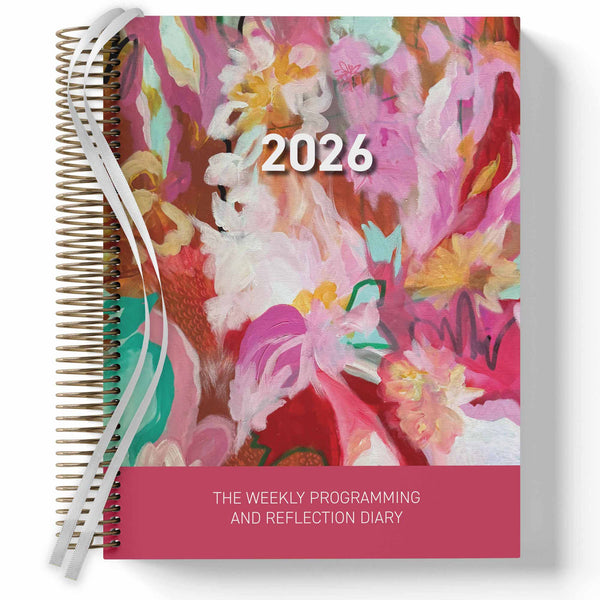Butler Buzz
-

What to Include in Each Programming Box (and Why There’s No “Wrong” Box)
“What actually goes in each programming box?” This post breaks down ideas for what to include in each programming box, links them clearly to the EYLF, and — most importantly — explains why the same experience can legitimately sit in different boxes, depending on your purpose.
-

Support Directories: Finding the Support You Need on Our Website
Finding support shouldn’t be a challenge. Our website brings everything you need into one place—from help using your diary, to professional development, to live assistance when you need a real person. Here’s a simple guide to where you can find support and what’s available to help you stay organised, confident, and connected in your ECEC practice.
-

What to Document in the Culturally Responsive Calendar
Cultural responsiveness isn’t just a buzzword — it’s a foundational practice across EYLF and MTOP v2.0. The Culturally Responsive Year Wall Calendar helps educators embed First Nations perspectives into daily documentation with intention and purpose. This guide shows how to align the calendar with your existing diaries, meet NQS expectations, and make cultural learning visible, respectful, and ongoing.
-

Weekly Checklist in the FDC Combined Compliance Checklist and Programming Diary
One of the most practical features of the Family Day Care Combined Compliance Checklist and Programming Diary is the Weekly Learning Outcome Checklist that appears in the monthly programming spread. While it may look simple at first glance, it has been carefully designed to support both clarity in programming and compliance with learning frameworks such as the EYLF and MTOP V2.0.
-

The Multifaceted Role of the Children’s Centre Diary: A Communication Hub and Quality Improvement Tool
How the Children's Centre Diary captures many roles across different teams — one powerful tool to lead, reflect, and stay connected. From Centre Directors to Room Leaders to the whole team, the Diary has become more than a planner. Here’s how different roles in your centre can use the Children's Centre Diary to keep everything — and everyone — on the same page.
-

NAIDOC Week and Beyond
NAIDOC Week is a significant event in Australia that celebrates the history, culture, and achievements of Aboriginal and Torres Strait Islander peoples. For educators in early childhood education, this annual observance offers a valuable opportunity to engage young children in learning about Indigenous cultures, fostering respect, and promoting reconciliation. In this article, we explore NAIDOC Week using a EYLF lens and provide program suggestions and examples. Download your Free Programming Spread Example here.
-

Documenting Developmental Milestones and Interests in Early Childhood Education
In this article, we explore why documenting both developmental progress and interests matters, and share practical, real-world strategies for collecting and recording this vital information.
-

How to Collect Child Input in Early Childhood Education and Care
How do we gather this input consistently, especially in the hustle and bustle of a busy early learning environment? Here are practical examples of how to collect child input, with purposeful use of tools.
-

A Closer Look at the Learning Data/Jottings Reflection Box in Your Programming Diary
It’s easy to record observations and then move quickly onto the next experience. But what truly deepens our practice is what we do with that information. The Learning Data or Jottings space in your diary isn’t just a placeholder for notes—it’s a tool for meaningful reflection, insight, and intentional planning. Used thoughtfully, it becomes the bridge between what was and what could be, allowing you to refine your practice, respond to children’s evolving interests, and ensure every child’s voice is heard.
-

Training Portal Guide and FAQs
The Butler Training Portal has been developed as another avenue of support for our customers. Here's everything you need to know...
-

50 ways to use a notebook as an early childhood educator
Your educator notebook is an absolute ESSENTIAL in ECEC, and now you can enjoy stunning guest artist educator notebooks that match your Educator Diary. Here are 50 ways to use your notebook to help clear your mind and keep you on track.
-

Tips for Using the Monthly Programming and Reflection Spread in the Family Day Care Combined Compliance Checklist and Programming Diary
Tips for Using the Monthly Programming and Reflection Spread in the Family Day Care Combined Compliance Check and Programming Diary
-

Tips for Using our Central Outdoor Weekly Programming and Reflection Diary
Tips for Using our Central Outdoor Weekly Programming and Reflection Diary - Updated 2025
-

Does your Programming Diary Support Critical Reflection?
Reflection is a key practice in ECEC, helping educators assess and improve their teaching strategies, interactions, and environments. However, there is a distinct difference between reflection and critical reflection—both are important, but critical reflection goes deeper, prompting meaningful change and professional growth. By using Butler Diaries, educators can structure their reflective practice and ensure they are engaging in ongoing critical reflection. Let’s explore the differences between reflection and critical reflection and how to use your Diary effectively.
-

The Butler Method: Simplifying Programming and Reflection in Early Childhood Education and Care
The Butler Method is a streamlined approach to programming and reflection in ECEC, designed to bring clarity, efficiency, and compliance to the often complex planning cycle. It is a boxed method that values intentional teaching while embracing spontaneous learning moments, seamlessly aligning with Frameworks. By offering a structured yet flexible approach, the Butler Method supports educators in meeting the requirements of NQS while also incorporating the insights of key educational theorists.
-

Engaging Parents in Children’s Programs: 10 Strategies for your Service
Parent involvement is key in creating a supportive, well-rounded learning environment for children. Active engagement can enhance children’s learning experiences and foster a collaborative, supportive relationship between educators and families. It is also a core component of NQS and ALFs. Here are 10 tailored strategies for each type of Early Childhood Education and Care setting to encourage parent interest and involvement in their child’s program. -

Bobbie’s Doggy Daycare Diary: Create your own Diary extension activity
Extend on the story ‘Bobbie’s Doggy Daycare Diary’ by creating your own Diaries. Children can express themselves and share their Daycare experiences in their very own Diary. Children will foster early language and literacy skills and foster their sense of identity and emotional development. Recalling their day and experiences strengthens memory, encourages reflection and helps link learning. Folding, stapling, writing and drawing all strengthen physical skills.
-

A Peek into the Early Childhood Cook Diary for ECEC with Examples
Here's we take a peek into the Early Childhood Cook Diary to see how it can help cook's and chef's in Early Childhood manage their kitchens and stay on top of compliance. -

A Look into the Children's Centre Diary with Examples
Here's we take a look at the Children's Centre Diary to see how it can be used to streamline your admin and help manage your office. -

A Deep Dive into the Nominated Supervisor Diary with Examples
Here we take a deep dive into the Nominated Supervisor Diary to see how it can be used to improve efficiency, memory and quality improvement in your service.
-

How to complete the Exceeding Guidance for National Quality Standard: Evidence Summary
The Exceeding Guidance for NQS Evidence Summary is designed to support you in succeeding at exceeding with guides to exceeding themes and evidence pages for national quality standards. Each quality area is followed by an evidence page that captures details of the evidence you've collected, where it is kept, and which element it relates to. -

Tips for Programming for Babies in the Weekly Programming and Reflection Diaries
The Weekly Programming and Reflection Diaries are designed to capture programs from babies through to school aged children. Slightly adapting the way you approach programming is what will help you complete your program. This article will support you to implement the Butler Method for younger age groups.
-

An Example of the Sustainability Calendar: QIP in Action
We recently received an example of the Sustainability Calendar and how it is being used to show the Quality Improvement Plan in Action, check it out. -

Family Day Care Compliance Diary: What's New
We collected your feedback and made some changes to the Family Day Care Compliance Checklist Diary. We have now jam packed more of your compliance needs into the same Diary while reducing how bulky it is! Sounds impossible we know, but we did it! Here we go through the changes and give you some examples...
-

A Practical Example of a Cycle of Planning
Here is an example of what a cycle of planning might look like... -

Where to find examples of the OSHC Weekly Programming and Reflection Diary?
We have a ton of examples and support available for our Weekly Programming and Reflection Diaries... here's how to find them. -

FAQs on the OSHC Diary
The OSHC Diary is a compliance tool for those working in Outside School Hours Care. It captures medical notifications, birthdays and celebrations, children leaving for activities, casual bookings and cancellations, family communication and visitor sign-ins. This means much of your compliance requirements are recorded in the one place and OSHC Educators and Leaders have a daily glance of what's happening inside the service to support supervision, children's inclusion and legal requirements. -

A Quick Guide to the Educational Leader Diary with Examples
The Educational Leader Diary when used correctly acts as a Reflection Tool and shows how critical reflection is being used within the team to improve outcomes for children. It demonstrates and captures evidence of the role of the Educational Leader and the work they are doing to support Educators. Here's a quick guide to the Educational Leader Diary to maximise the way it's being used in your service. -

Where to find Program inspiration?
Are you stuck? Feel like you've fallen into the cycle of the same thing over and over and want to start the year off fresh? Maybe still stuck in Christmas mode? Here are all the places you can find program inspiration this year!
-

FAQs on the Weekly Programming and Reflection Child Educator Diary
Have some questions on how the Weekly Programming and Reflection Diary can best be used to show the cycle of planning and children's goals? Wondering how to use it and show evidence for Assessment and Rating... all your information is here. -

Free Early Childhood Christmas Program with Links to EYLF
Download your free EYLF Early Childhood Christmas Program. Incorporating these Christmas activities into your ECEC program not only brings holiday cheer but also aligns with the principles of EYLF. It's a testament to the rich learning opportunities that can be found in every festive season. Remember to document these activities in your Weekly Programming and Reflection Child Educator Diary. -

EYLF Activities to Develop Gross Motor Skills 0-5 Years
In the first two years of life, children are rapidly developing their gross motor skills. Here are some activities tailored to 0-5 year olds that are linked to the Early Years Learning Framework.
-

Digital vs. Paper: What's Right for your Service?
The question of sustainability in Early Childhood Education and Care (ECEC) is more relevant now than ever. We were recently asked, "Wouldn’t it be more sustainable on digital media rather than all that paper?" It's an important question, and one that deserves a nuanced answer.
It's no secret that digital platforms have made significant inroads in various sectors, including education. But what is truly better for your service? This reflective article will help you decide.
















































